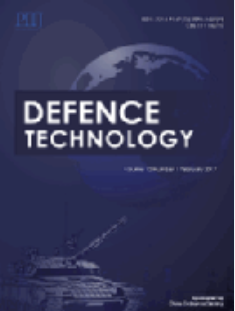FedCLCC:基于对比学习和条件计算的边缘云协作个性化联合学习算法
IF 5
Q1 ENGINEERING, MULTIDISCIPLINARY
引用次数: 0
摘要
联合学习(FL)是一种适用于边缘云计算的分布式机器学习范例。FL 可以促进战术场景中的数据驱动决策,有效解决边缘环境中的数据量和基础设施挑战。然而,边缘云计算中客户端的多样性给联合学习带来了巨大挑战。近年来,个性化联合学习(pFL)受到了广泛关注。个性化联合学习的一个例子是利用本地模型中的全局和局部信息。目前的 pFL 算法存在收敛速度慢、灾难性遗忘、在复杂任务中表现不佳等局限性,与集中式学习相比仍有明显不足。为了实现较高的 pFL 性能,我们提出了 FedCLCC:Federated Contrastive Learning and Conditional Computing(联邦对比学习和条件计算)。FedCLCC 的核心是使用对比学习和条件计算。对比学习确定特征表示的相似性,从而调整局部模型。条件计算将全局和局部信息分离开来,并将其反馈到相应的头部进行全局和局部处理。我们的综合实验证明,FedCLCC 优于其他最先进的 FL 算法。本文章由计算机程序翻译,如有差异,请以英文原文为准。
FedCLCC: A personalized federated learning algorithm for edge cloud collaboration based on contrastive learning and conditional computing
Federated learning (FL) is a distributed machine learning paradigm for edge cloud computing. FL can facilitate data-driven decision-making in tactical scenarios, effectively addressing both data volume and infrastructure challenges in edge environments. However, the diversity of clients in edge cloud computing presents significant challenges for FL. Personalized federated learning (pFL) received considerable attention in recent years. One example of pFL involves exploiting the global and local information in the local model. Current pFL algorithms experience limitations such as slow convergence speed, catastrophic forgetting, and poor performance in complex tasks, which still have significant shortcomings compared to the centralized learning. To achieve high pFL performance, we propose FedCLCC: Federated Contrastive Learning and Conditional Computing. The core of FedCLCC is the use of contrastive learning and conditional computing. Contrastive learning determines the feature representation similarity to adjust the local model. Conditional computing separates the global and local information and feeds it to their corresponding heads for global and local handling. Our comprehensive experiments demonstrate that FedCLCC outperforms other state-of-the-art FL algorithms.
求助全文
通过发布文献求助,成功后即可免费获取论文全文。
去求助
来源期刊

Defence Technology(防务技术)
Mechanical Engineering, Control and Systems Engineering, Industrial and Manufacturing Engineering
CiteScore
8.70
自引率
0.00%
发文量
728
审稿时长
25 days
期刊介绍:
Defence Technology, a peer reviewed journal, is published monthly and aims to become the best international academic exchange platform for the research related to defence technology. It publishes original research papers having direct bearing on defence, with a balanced coverage on analytical, experimental, numerical simulation and applied investigations. It covers various disciplines of science, technology and engineering.
 求助内容:
求助内容: 应助结果提醒方式:
应助结果提醒方式:


